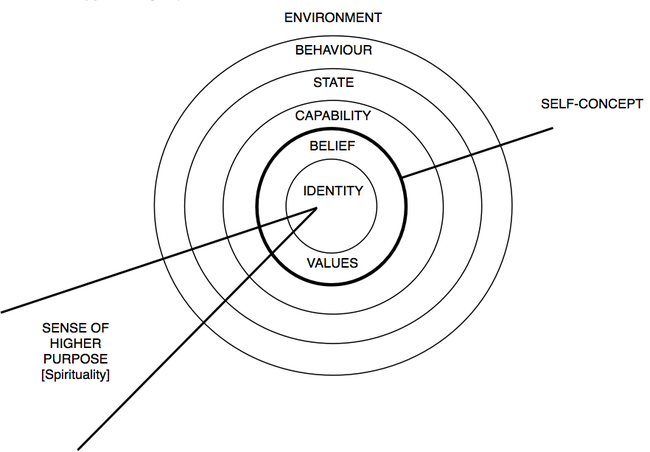Values; A Recipe for Success or Disaster.
Like my old bathroom scales, an organisations’ profit are an objective measure of growth or decline, health or ill health. In a “healthy” organisation its’ purpose and values have generated that growth in a highly ethical manner.
The opposite is true of an unhealthy organisation or leadership; growth and profits are cultivated through ill-defined purpose and values that in turn leads to unethical behaviour.
For example, News of the World generated profits, and fairly substantial ones at the peak of its power (at one stage it was the largest newspaper in the world). How it generated those profits is now the topic of much discussion, and kept many lawyers profitable!!
Elisabeth Murdoch noted in the wake of the phone hacking investigations that, ‘profit without purpose is a recipe for disaster,’ and that organisations need to ‘discuss, affirm and institutionalise a rigorous set of values based on an explicit statement of purpose.’
News of the World generated profits through an ill-defined purpose and questionable set of values. Can the same be said of leaders and individuals who contribute to unhealthy growth? Can attempts to maintain/increase profits in an unhealthy manner result in harm to others?
Bill George notes that the 2008 financial crisis ‘… exposed the fallacies of measuring success in monetary terms and left many leaders with a deep feeling of unease that they were being pulled away from what I call their True North.’
Bill goes on to say that, ‘Too many leaders placed self-interest ahead of their organizations’ interests, and ended up disappointing the customers, employees, and shareholders who had trusted them.’
It’s our identity that informs our internal values and beliefs and dictates our behaviour, not the other way around. Allowing external values to dictate behaviours is a recipe for disaster that catches out many leaders.
If we as leaders start to measure our value by our net worth, personal gain, company profit or the accolades and approval of others, then we are in trouble. We are in trouble because eventually we will disappoint or harm our customers, employees, and shareholders.
The issue we face as leaders is that values and purpose are more difficult to articulate than a strategic vision.
A vision statement states what the organisation wishes to be like over some span of time. It is an effort to take our thinking beyond day-to-day activity and to imagine what we will look like. It is measurable over a defined time period. Vision says, “This is what we’re doing for ourselves.”
A set of values and a purpose rely less on analysis and logic and more on emotion and intuition.
A purpose statement is designed in such a way to express the organisation’s impact on the lives of all stakeholders. A Purpose statement says, “This is what we’re doing for someone else”
Values determine our evaluations, drive our commitment, guide decisions and describe our desired culture. A Values statement serve as a behavioral compass and say, “This is why we do what we’re doing for someone else.”
NovaCare is a case in point for defined values and purpose. In 1990, NovaCare undertook a values reorientation to help reduce its most serious problem, turnover. In 1988 that rate stood at 57%. By 1993 this had reduced to 27%. Not only were NovaCare retaining professionals, it found hiring new clinicians easier.
Leaders who hold dear the value of “doing for someone else” do not have a job or perform a task, they think of themselves as having responsibilities.
They take responsibility for their own actions, and are always looking for an opportunity to find a solution and demonstrate theirs and the organisations values. They don’t seek to be heroes.
Jim Collins noted that, ‘The best leaders we’ve studied had a peculiar genius for seeing themselves as not all that important, reasoning the need to build an executive team and to craft a culture based on core values that do not depend on a singular heroic leader.’
Inspiring, empowering leaders don’t wear their values on their sleeves, but they do treasure their beliefs and these values pervade everything they say and do. An important value many followers desire in their leaders today is openness.
Lindsay Levin said that, ‘I talk very much from the heart, from the soul. This was initially a very strange thing to do in the motor [car] business, because it’s a very macho culture. You have to open up your heart and let people know what you really think and believe. This means talking about your values and the values in your organization. The key is being able to align these two— personal and organizational values—and being at home in your skin, and being honest with yourself. You may have a set of values or mission stuck up on the wall, but if it’s not what you’re about, then everyone in the business will know, and it’s a complete waste of time, and you’d probably be better off not to do anything. Be honest with yourself about what really matters to you and motivates you. And you’ve got to make sure that what you’re doing in your business is aligned with what you’re really all about.’ 1
Leaders are expected to be visionary and think in novel ways. Openness should be an essential behavioral trait of any leader because it includes curiosity, being unconventional, imaginative, aesthetic, open to emotions and having many interests.
Openness creates an environment where trust and creativity can flourish. Contrarily, secrecy, keeping knowledge back, breeds distrust and reduces work effort. Nothing undermines openness more than certainty. Once we feel we have the “answer,” all motivation to question our thinking disappears.
A mature organisation or person live or die by their values. Good values help us to master our emotions, to progress beyond being merely reactive to becoming proactive, assist us to determine what we want to achieve and the standards by which to evaluate those achievements.
Like a set of bathroom scales an explicit statement of purpose and a rigorous set of values offer an objective measure to help develop and drive healthy (personal and corporate) growth and profitability.
A leader guided by good values is driven by belief not personal gain. They empower followers and create long-term gains within a highly ethical framework.
The greatest virtue, behaviour, every leader should cherish is humility. It is the foundation to most other good values. Alfred Lord Tennyson called it “the highest virtue, the mother of them all.”
My apologies to the designer of this graphic. Many years ago I copied it during a talk I was attending but failed to note who the author was. If we have an ill-defined identity then we will use success - our capability, our state of being, behaviours and our environment to define our self-concept.
However, if we allow a “Higher Sense of Purpose” (based on a deep conviction of our calling and mission in life, our purpose and values) to influence our identity we avoid the trappings of “unhealthy” success.
A leader driven to succeed, with a clear sense of purpose, and is also humble recognise two things:
- that they can’t succeed without help, and
- that their sense of purpose fits within a larger context that is individually beneficial.
However, a leader who is not humble ends up using people to reach their goals. Unfortunately, the damage that comes with a lack of humility diminishes whatever “success” they may have achieved.
Humility may well be one of the most difficult vitues to attain to, if ever, because the first thing we are faced with it our own arrogance and/or hubris.
Benjamin Franklin, in his effort to learn humility, said that, ‘In reality there is perhaps not one of our natural passions so hard to subdue as pride. Disguise it, struggle with it, beat it down, stifle it, mortify it as much as one pleases, it is still alive, and will every now and then peep out and show itself.’ 2
However, I have found that in valuing humility the affect on my personal and public life have been exciting. I have become both a better leader and father, and I love coaching other leaders, because I learn more from them than I feel I impart.
As a father, leader and coach I no longer consider myself having to “know everything.” I can now place myself in the feet of my sons, followers and coachees and gain a better understanding of them.
My desire is now to see others become great, and hopefully surpass me, or my imagination of what they could be.
Research has shown that humility positively predicts the quality of team contribution above and beyond conscientiousness, mental ability, confidence and capacity, and is marked by an ability to admit mistakes.
Humility enables greater learning and adaptability. Some research indicates that, “…more information does not guarantee better decisions. In fact, we tend to overestimate the value of additional information … Dr. Stuart Hopkins, who did extensive research on this topic … discovered … that when people are given more information, they grow more confident in their ability to solve the problem. However, their actual results are not better. Sometimes, they are worse.” 3
A humble leader listens to others and values openness. A leader who holds and values humility is self-aware; the knowledge that we might possibly be wrong, or lack knowledge. Those who acknowledge this possibility can then become open to new ideas, the perspectives of others, or new ways of knowing things.
Those individuals and organisations who possess humility are a better fit in dynamic environments as they are more likely to admit knowledge gaps, past mistakes, genuinely value the expertise of others, and embrace trial and error learning.
The scales we should use for the foundation of ours and our organisations success, in my humble opinion, is humility. It is a Meta-Virtue, foundational to most other virtues, and is integral to one being adaptable, learning and treating others with respect and honour.
When we leave this mortal toil our organisation (hopefully) will continue, and create profits, regardless of our demise. The only lasting legacy we as leaders can leave is other leaders who create other leaders, and greater profits, beyond ourselves or our organisations.
The mark of a great leadership is not simply defined by profits or growth. The true mark of a leader is how many leaders they grew.
Like my bathroom scales, an explicit statement of purpose and a good, rigorous set of values offer an objective measure to help develop and drive healthy personal and organisational growth. A good set of values and purpose are a recipe for healthy growth.
Beverly A. Najt., Essential Qualities Of Great Leadership: Humility 2
Bill George. Mindfulness Helps You Become a Better Leader.
Bradley P. Owens., Expressed Humility in Organizations:Implications for Performance, Teams, and Leadership.
Colleen Sharen., What is Humility in Leadership?
Geoffrey James. 7 Traits of Truly Inspiring Leaders.
Hal Urban., Life’s Greatest Lessons or 20 Things I Want My Kids to Know
James M. Kouzes and Barry Z. Posner., The Leadership Challenge. 1
Jim Collins., How The Mighty Fall
Joseph Chancellor and Sonja Lyubomirsky., Humble Beginnings: Current Trends, State Perspectives, and Hallmarks of Humility.
Keneth L. Murrell & Mimi Merredith., Empowering Employees.
Lynn Sharp Paine., Look At Managing For Organizational Integrity.
Dr. Mike Armour. The Payback for the Humble Leader: Humility and Leadership
Michelle C. Bligh and Ronald E. Riggio., Exploring Distance in Leader-Follower Relationships: When Near is Far and Far is Near.
Michael Hyatt. The Necessity of Humility in Leadership. 3
Owens, Bradley P., Rowatt, Wade C., Wilkins, Alan L. A., Exploring the Relevance and Implications of Humility in Organizations.
Peter M. Senge., The Fifth Discipline.
Peter M. Senge., The New Management: Moving from Invention to Innovation

